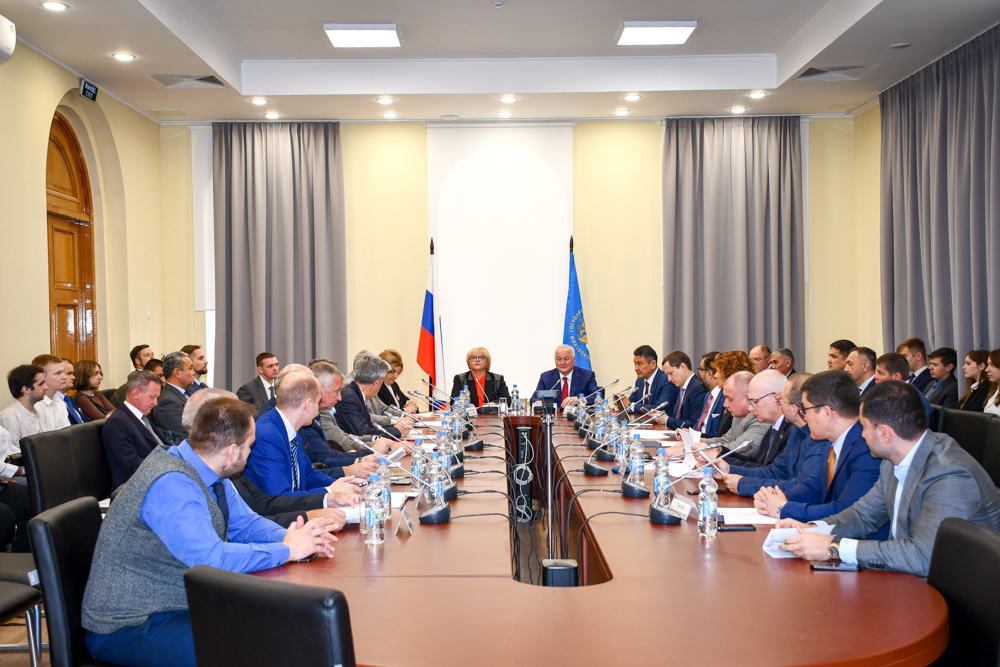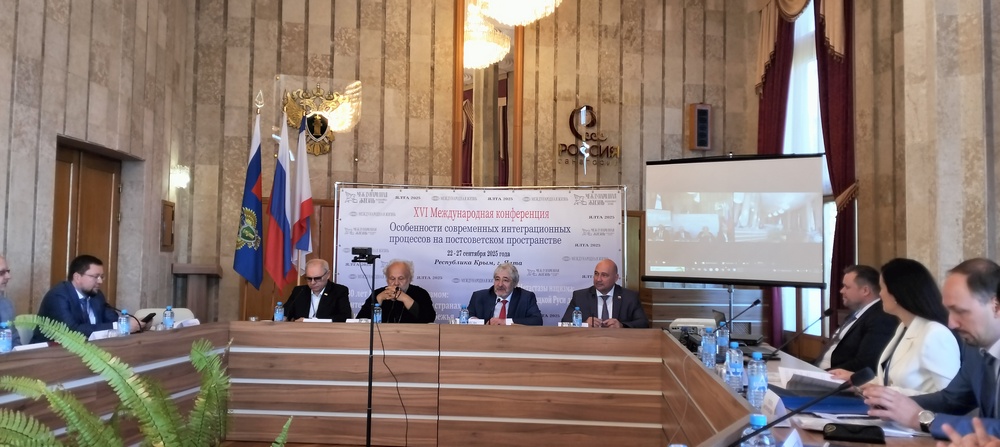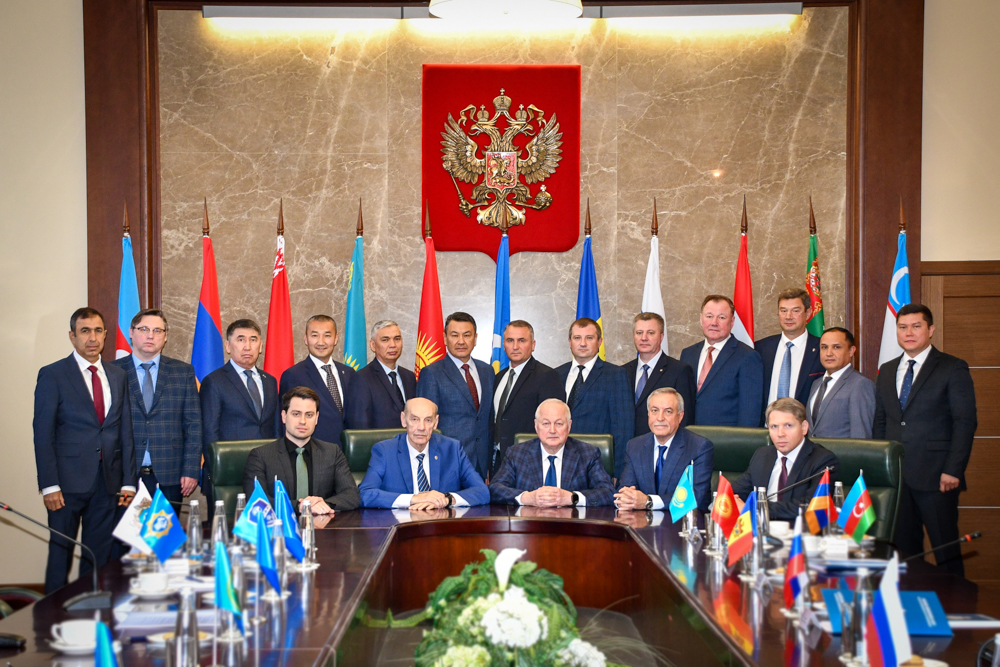September 9, 2014
Date 09 September 2014
Venue Almaty, Kazakhstan
Organizer CIS Anti-Terrorism Center
Moderator: chair of CIS SAC Doctor M.A. Kochubey
Participants V.Ya. Grin', Deputy Prosecutor General of the Russian Federation; D.A. Ryabov, First Deputy Head of Department "P" of the Russian Federal Security Service; Kuanyshev, head of anti-terrorism department of the National Security Committee Academy of the Republic of Kazakhstan; Doctor G.F. Dubovtsev, chief scientific officer of Kazakhstan Institute of Strategic Research at the President of the Republic of Kazakhstan; V.N. Gluschenko, head of complex ecological research center of RSE Institute of Nuclear Physics of the Nuclear Energy Committee of the Ministry of Energy of the Republic of Kazakhstan; S.A. Sidorenko, head of nuclear security section of Institute of Nuclear Physics of the Nuclear Energy Committee of the Ministry of Energy of the Republic of Kazakhstan; Doctor G.T. Shevchenko, lead researcher of FPSE 12th central R&D Establishment of the Russian Ministry of Defense.
The following topics were discussed at the expert level:
Risks of nuclear/radiological terrorist acts in the contemporary world.
International legal regulation for preventing nuclear/radiological terrorist acts.
Contemporary practices of cooperation between international and national structures in preventing nuclear/radiological terrorist acts.
Challenges for cooperation between competent authorities and specialized structures of the CIS member-states in preventing and suppressing nuclear/radiological terrorist acts (best practice of controlled deliveries; problem for identification of nuclear and radioactive source origin; organization of joint operations to eliminate consequences of possible nuclear/radiological terrorist acts).
The issues related to specificity of nuclear forensics and identification of examination objects, formation of data basis (library) for expert researches and specificity of operation of such agencies as GICNT aroused the highest interest and invited a discussion.




